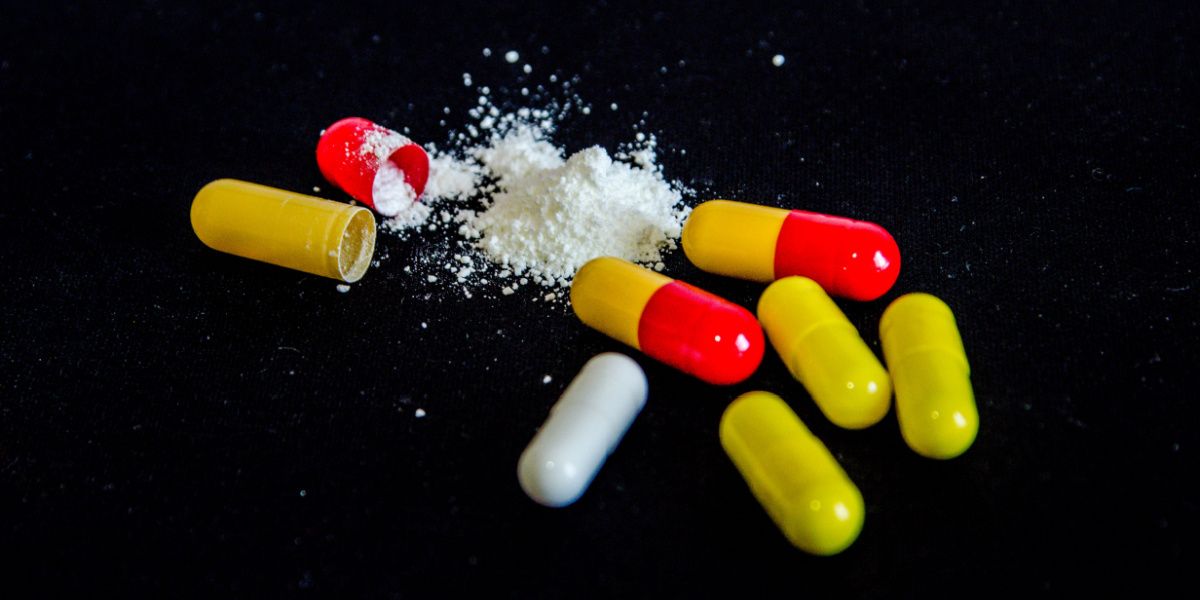Amphetamines (substances that contain the central nervous system stimulant amphetamine) can cause several side effects, including hyperactivity, euphoria, insomnia, and agitation. It can also cause severe side effects and increased risks, particularly if it is abused or used for prolonged periods.

Common side effects of amphetamines
People can experience a range of side effects when taking amphetamines. These effects can vary depending on the dose, route of administration, and underlying conditions. [7][9]
Common side effects of amphetamines include: [1][3][6][9]
- Elation
- Euphoria
- Increased energy
- Hyperactivity
- Reduced appetite
- Insomnia
- Agitation
- Anxiety
- Nervousness
- Suspiciousness
- Mood swings
- Low mood
- Depersonalization
- Headache
- Diarrhea
- Nausea
- Dizziness
- Fast pulse
- Muscle pain or spasms
- Dry mouth
- Difficulty or pain when urinating
- Urinary tract infections
- Back or side pain
Severe side effects of amphetamines
In some cases, amphetamines can cause severe side effects. This can include: [2][3][6]
- Fever
- Chest pain or tightness
- Rapid, slowed, or irregular heartbeat
- Hives or rash
- Trouble breathing
- Severe changes in mental state
- Tiredness or weakness
- Aggression
- Loss of consciousness
- Seizures
- Fainting
- Mania
- Psychosis, including paranoia, hallucinations, and delusions
- Increased risk of heart attack or stroke
- Slowed weight or height growth in young people
- Serotonin syndrome if used alongside serotonergic medications such as antidepressants
Prolonged use or abuse of amphetamines can lead to an increased risk of severe side effects, tolerance, dependence, and addiction. [2][8]
Amphetamine tolerance causes the effects of the substance to be reduced. This means that individuals require higher doses to achieve the same effects, which can contribute to abuse or misuse. [8]
Physical dependence on amphetamine is more likely to occur with prolonged use. Dependence means the body has to rely on the drug. This results in amphetamine withdrawal symptoms if substance use is stopped, including cravings, mood changes such as depression and anxiety, extreme tiredness, insomnia, cognitive impairments, and pain. [7]
Addiction is a physical and psychological condition that differs from tolerance and dependence, although often occurs alongside their development. Amphetamine addiction can cause compulsive drug-seeking behaviors and harmful effects on a person’s quality of life, well-being, and overall functioning. [8]
Why do people abuse amphetamines?
Amphetamine increases levels of the neurotransmitters dopamine, norepinephrine, and serotonin. It has several mechanisms of action that impact dopamine levels. Dopamine is the primary neurotransmitter involved in the reward center in the brain and contributes to feelings of pleasure.[1][2]
Amphetamine causes a large release of dopamine, which leads to a feeling of euphoria or ‘high’. This is known to reinforce the use of the substance, contributing to the development of abuse and addiction behaviors.[2][8]
Prescription amphetamines such as Adderall or Dexedrine are commonly abused to enhance academic or athletic performance because they increase energy and focus. Additionally, amphetamines may be abused due to their effects on appetite, by individuals wishing to lose weight. [2]
People who are prescribed amphetamines may develop a physical dependence on the substance, particularly after prolonged use. This can cause the continuation or increase of its use, in an attempt to prevent stimulant withdrawal symptoms. [6]
Common forms of amphetamine abuse and misuse include: [1][2][8]
- Attempting to obtain numerous prescriptions to abuse or supply amphetamine, known as ‘doctor shopping’
- Selling or sharing amphetamine obtained through prescription
- Illegally producing, selling, or buying amphetamine
- Administering amphetamine in an unintended manner, such as snorting, injecting, or smoking
- Taking higher or more regular doses than prescribed
Do amphetamines and methamphetamine have the same effects?
Amphetamines and methamphetamine are CNS stimulants and cause many of the same effects. Methamphetamine is a derivative of amphetamine, and they share many similarities in their chemical structures and properties. Amphetamine and methamphetamine cause similar effects, including increased energy, reduced appetite, and rapid heartbeat. [9][10]
However, methamphetamine is more potent than amphetamine, meaning that the effects of methamphetamine can be caused by smaller doses. Similarly, the effects of methamphetamine are found to last longer and are more likely to cause harm. [10][11]
While both amphetamines and methamphetamine significantly increase dopamine, this occurs to a greater extent with methamphetamine use. As such, the euphoric effects of methamphetamine are more substantial, and it is considerably more addictive. [11]
Amphetamine overdose
Because of their effects on the central nervous system, amphetamines can cause severe consequences in overdose. The risk of overdose may be higher for individuals who abuse amphetamines, mix amphetamines with other substances, or have underlying physical health conditions. However, overdose can occur with any dose or form of amphetamine. [1][9]
Symptoms of an amphetamine overdose can include: [8][9]
- Rapid heartbeat
- Difficulty breathing
- Loss of consciousness
- Seizures or convulsions
- Heart attack
Amphetamine overdoses can be severe or even fatal. In the event of an overdose, call 911 immediately. Benzodiazepines may be administered to reduce CNS effects. [3]
Getting treatment for amphetamine dependence
Someone stopping or reducing the use of a prescribed amphetamine will likely be tapered off their medication gradually to prevent withdrawal symptoms. Individuals using illicit amphetamine might choose to gradually reduce their use or stop abruptly, although this can increase the risk of withdrawal symptoms. [6][8]
Individuals may prefer to utilize professional support during withdrawal, as this can help to monitor and manage severe physical or psychological withdrawal symptoms. This can be provided through outpatient treatment or inpatient treatment programs, such as a rehab center. [12]
Treatments for amphetamine dependence include: [3][8][12]
- Medications: There are no medications approved for amphetamine withdrawal, although some medications can be used to reduce the impact of withdrawal symptoms. For example, antidepressants can reduce symptoms such as low mood and anxiety, benzodiazepines can improve sleep and agitation, and antipsychotics can reduce psychotic symptoms.
- Therapies: Different types of therapy, such as cognitive behavioral therapy (CBT), can be beneficial in the treatment of amphetamine dependence. Therapy can help reduce addictive behaviors, manage emotional distress caused by or contributing to substance use, treat any underlying mental health struggles, and teach skills to manage triggers and cravings.
- Holistic therapies: Holistic treatments can improve physical and mental well-being and help in the withdrawal and recovery process. This includes nutrition counseling, exercise, and mindfulness.
Treating substance use disorders, such as amphetamine dependence, can require ongoing or long-term support to improve recovery and maintain abstinence. This can include support groups, 12-step programs, and psychotherapy.



-guide-detail.jpg?v=1722501068)
